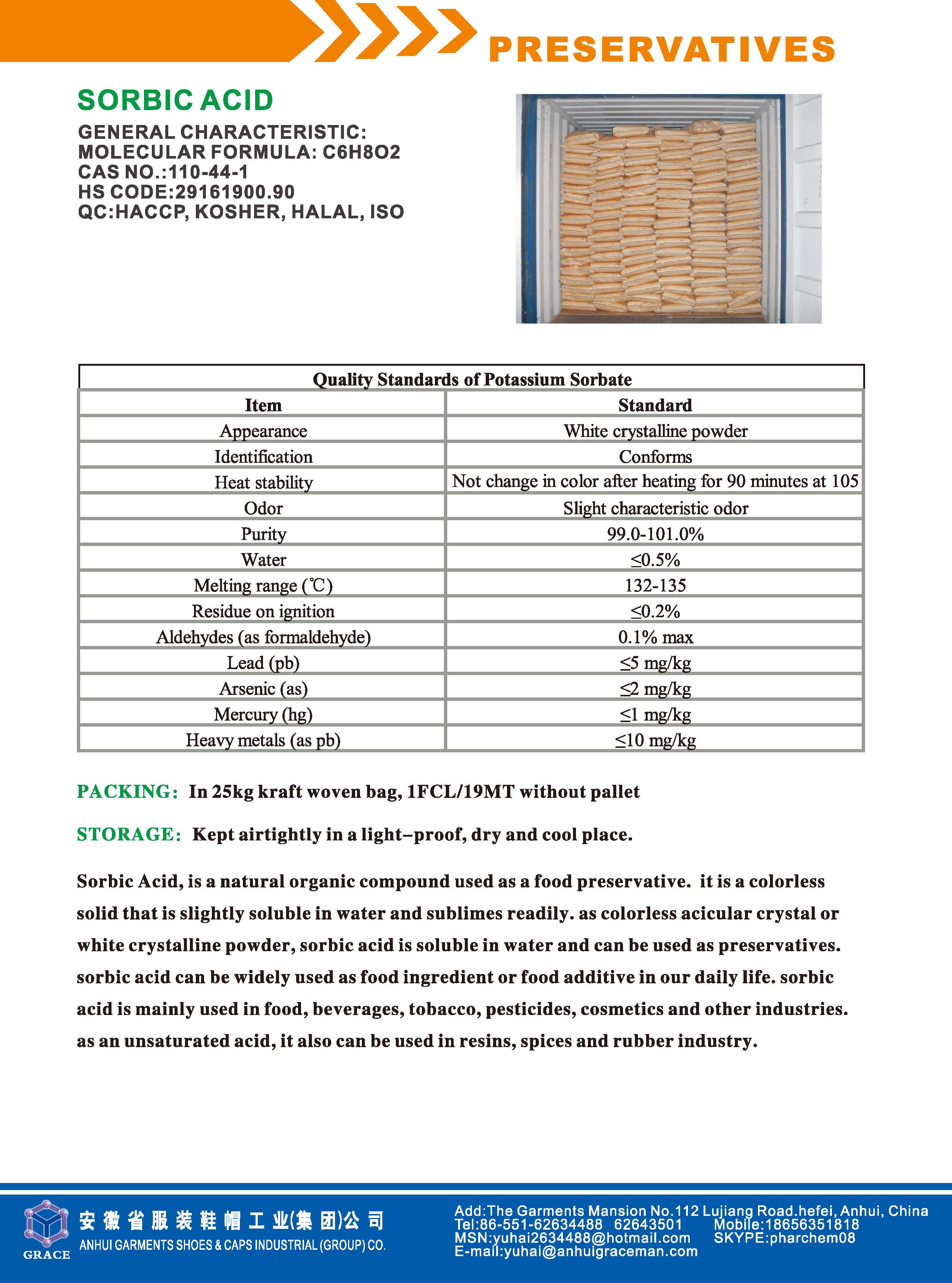close
Choose Your Site
Global
Social Media
| Availability: | |
|---|---|
| Quantity: | |








CAS NUMBER: 110 - 44 - 1
EINECS: 203 - 768 - 7
Molecular Formula: C6H8O2
White crystalline powder or flakes.
Acidic Property: Sorbic acid has a distinct acidic nature. It can lower the pH value, which is crucial for its application as a preservative.
Low Toxicity: Sorbic acid is recognized as a relatively safe food additive. It can be metabolized in the body and does not accumulate, thus minimizing potential health risks.
Broad - Spectrum Antimicrobial Activity: It can effectively inhibit the growth of a wide variety of microorganisms, including molds, yeasts, and some bacteria, especially in acidic conditions.
Preservative in Processed Foods: Widely used in various processed foods such as meat products, poultry, fish, and seafood. It helps prevent spoilage and extend the shelf - life of these products by suppressing microbial growth.
Preservation in Dairy Products: Added to milk, cheese, yogurt, and other dairy products to prevent the growth of molds and yeasts. In cheese production, sorbic acid not only extends the shelf - life but also helps maintain the characteristic flavor and texture of the cheese.
Beverage Preservation: Utilized in soft drinks, fruit juices, and beer to control microbial activity. In carbonated beverages, sorbic acid helps keep the drink fresh by preventing the growth of unwanted microorganisms that could cause off - flavors and cloudiness.
Active Ingredient in Antifungal Medications: In some topical antifungal creams and ointments, sorbic acid is used as an active ingredient to treat fungal infections such as athlete's foot and ringworm. It acts by disrupting the cell membrane of fungi, leading to their death.
Preservative in Pharmaceutical Formulations: As a preservative in tablets, capsules, and injections, sorbic acid helps prevent the growth of microorganisms in these formulations, ensuring product quality and safety.
Preservative in Skincare Products: Incorporated into creams, lotions, and cleansers to protect them from microbial contamination. It maintains the integrity of the product over time, preventing the formation of harmful bacteria and fungi that could cause skin problems.
Stabilizer in Makeup Products: In some makeup products like lipsticks and foundations, sorbic acid helps maintain the stability of the formulation, preventing discoloration and separation over time.
Textile and Leather Industry: Acts as a preservative in textile finishing agents and leather processing solutions to prevent microbial growth during storage and use of these products. It helps maintain the quality and appearance of textiles and leather goods.
Metalworking Fluids: Used in metalworking fluids as a preservative to inhibit the growth of bacteria and fungi in the fluids. This prevents the degradation of the fluid, maintains its lubricating and cooling properties, and extends the service life of the fluid.

